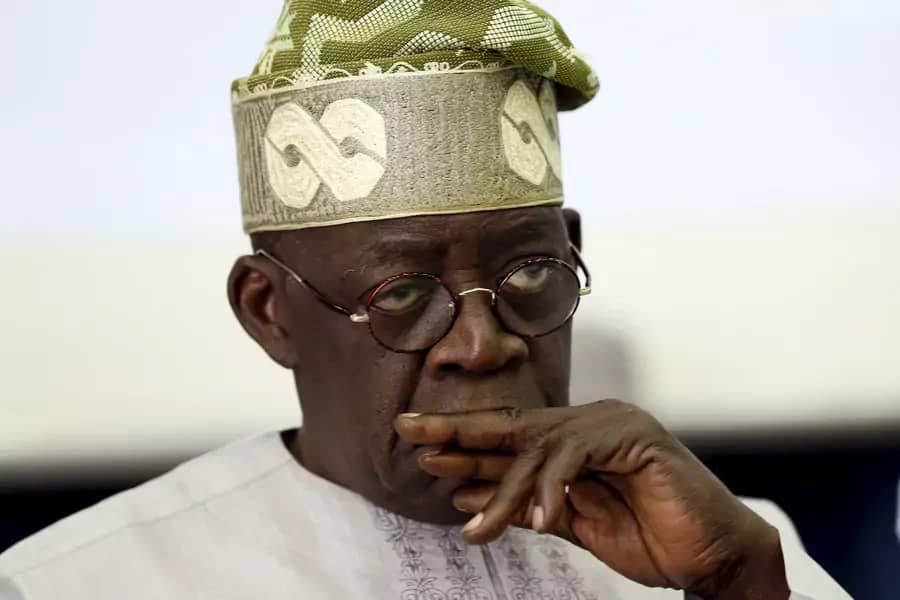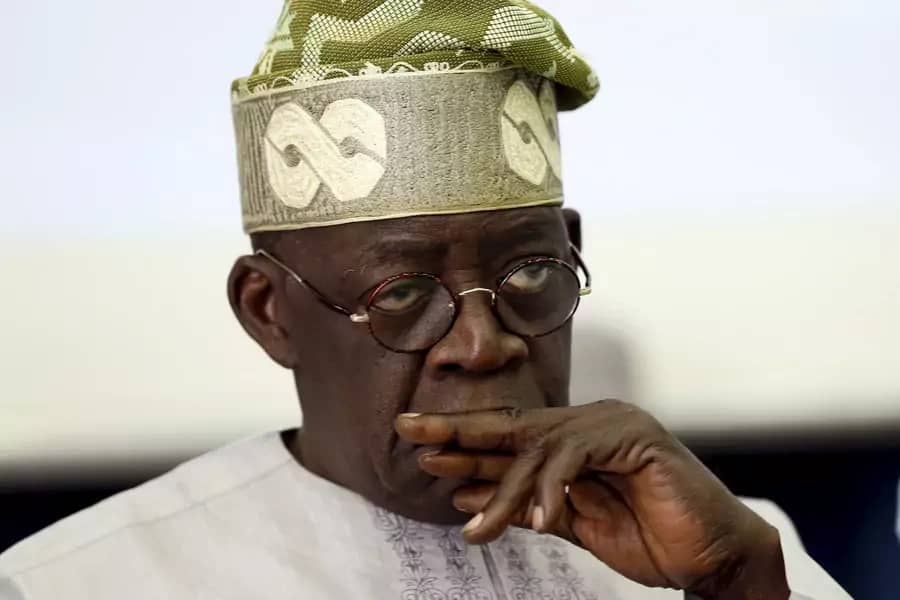By Karen James
“President Tinubu Admits Buying Presidential Seat, Sparks Controversy and Outrage “
In a shocking revelation, President Bola Ahmed Tinubu has admitted to buying his way into the presidential seat during the 2023 elections. The revelation was made during a meeting with traditional and ecclesiastical rulers from across the country. Tinubu’s admission has ignited controversy and sparked outrage among Nigerians who are expressing their disappointment and anger over the corrupt nature of the political system.
According to reports, many of the traditional rulers, especially from the North and the South West, were not surprised by Tinubu’s admission as they had benefited from his generosity in the past. However, some individuals, like Sokoto-based Islamic cleric Sheikh Bello Yabo, were shocked by the extent of the President’s candidness. Yabo commended Tinubu for his honesty, stating that whoever pays for power dictates the rules.
Critics have pointed out that Tinubu’s admission confirms what many Nigerians have suspected for years – that political power in the country is often obtained through corrupt means. The revelation raises questions about the legitimacy of Tinubu’s presidency and raises concerns about the true interests and priorities of those in power.
This revelation comes on the heels of other confessions by political figures involved in the 2023 elections. In Rivers state, key players who worked with Tinubu’s ally, Minister Nyesom Wike, have publicly confessed to manipulating the election to favor their preferred candidate and undermine the opposition. These revelations paint a grim picture of the state of Nigerian politics and highlight the need for transparency and accountability in the electoral process.
Nigerians are now demanding a breakdown of the corrupt practices that took place during the 2023 elections. They want to know who received what and to what extent the nation’s future was compromised for personal gain. The role of APC governors, the Independent National Electoral Commission (INEC), and the judiciary in the electoral process has also come under scrutiny, with calls for investigations into their involvement.
While some may argue that Tinubu’s admission was a slip of the tongue or a misrepresentation of his intentions, it is clear that the President was fully aware of the implications of his words. He wanted the traditional rulers to understand that they cannot benefit from his largesse and then turn against him. Those who accepted his money for various reasons, including religious, ethnic, and party affiliations, have no right to protest against him if they are sincere in their support.
This revelation has exposed the underlying issues of Nigeria’s political system, where corruption is rampant and the interests of the people are often disregarded. It is a reminder that those who prioritize personal gain over the welfare of the citizens will eventually face the consequences of their actions.
Tinubu’s desperate attempts to subvert the nationwide #Endbadgovernance protest further highlight the lack of legitimacy and unity within his administration. The President’s reliance on military-like consultations with traditional rulers to win their support demonstrates a troubling approach to governance and a disregard for democratic principles.
As the protest continues and the demands for accountability and good governance grow louder, Nigerians are left to ponder the future of their country. It is clear that change is needed, and the power lies in the hands of the citizens to bring about that change. With unity, transparency, and a commitment to upholding the principles of democracy, a new Nigeria is still within reach.


